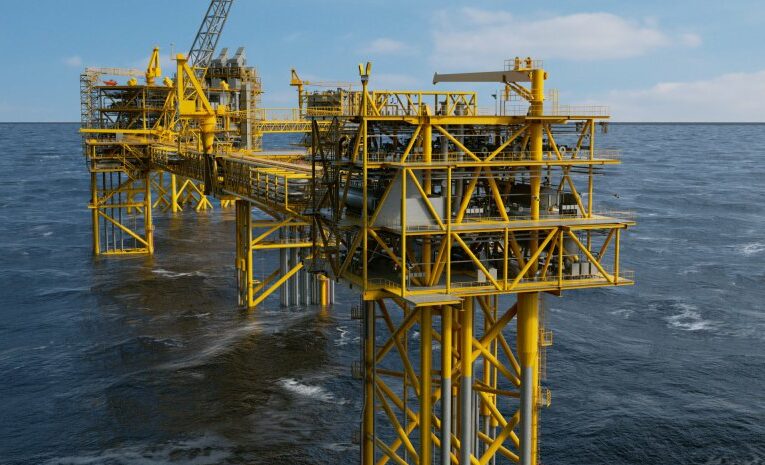
Bad weather this winter has caused flight cancellations that could leave hundreds of workers left offshore over Christmas.
French oil giant TotalEnergies has confirmed that around 300 workers are due home from its platforms in the Danish sector, but bad weather has left workers unable to depart.
It’s understood crews on the Tyra development off Denmark, including some Scottish workers, are affected.
But the firm has pledged to “do our utmost to bring all stranded people back before Christmas”.
Three boats have also been sourced by the company “which can dock close to the platforms and establish a safe footbridge if the wave height is not too great.”
The first boat left Danish docks at the weekend with more voyages planned over the coming week.
TotalEnergies has said that it is in “close dialogue” with Offshore Helicopter Services Denmark as it intends to keep its staff up to date with any developments.
To counteract the cancelled helicopter flights, the firm has reported that it is in contact with another helicopter supplier so that we can increase the number of flights when the weather permits.
The French oil major has said that the blame for the cancelled helicopters lies with something called “triggered lighting”.
This meteorological phenomenon is caused by polar air passing over a warmer sea surface. So far this has led to the cancellation of “52 flights in November and December 2022.”
The firm says that compared to the same period in 2021 there were zero cancellations of helicopters as a result of this arctic winds fuelled issue.
We will do our utmost to bring all stranded people back before Christmas.
TotalEnergies has said that the effects of this weather phenomenon cannot be counteracted with de-icing systems, something that been discussed in the media surrounding the flight cancellations.
Homesick workers are prepared to remain in their cabins and refuse to work if the issue is not resolved, according to news reports.
A Total spokesperson told said: “Helicopter transports during wintertime around the North Sea are always challenging due to ice, fog, wind speeds and other factors.
“All our manned offshore installations are normally serviced by helicopters, which on a normal weekday transport approximately 130 people back and forth out of a total workforce offshore of approx. 1250 persons.
“Since the flights have not been able to take place to the required extent, there are approx. 300 people who should have left and are now awaiting transport to shore.
“We never compromise with the safety of our employees, neither on the platforms offshore nor during the transport back and forth between Esbjerg and the fields 250 km out in the North Sea.
“When the weather is again favorable, we can now transport efficiently both by boat and by helicopter.
“We will do our utmost to bring all stranded people back before Christmas.”
